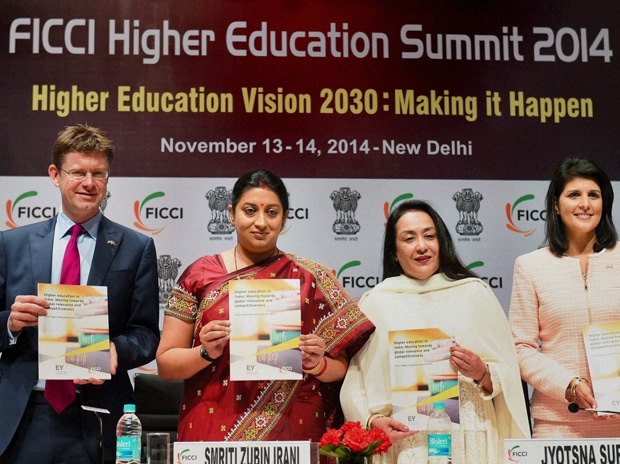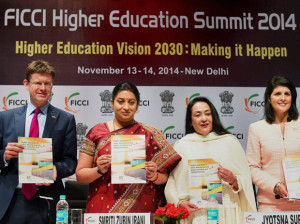
Human Resource Development Ministry is reviewing the functioning of regulatory bodies that governs India’s education sector.
“I have undertaken review of regulatory bodies. We can design a path forward which is not only holistic but also that takes cognisance of the future,” HRD Minister Smriti Irani said while inaugurating the FICCI Higher Education Summit 2014 here in the capital.
“For the last six month we are understanding the working of these regulators and how reforms can be brought in the functioning of our regulators? Be it UGC or AICTE and NCTE, need to understand that India needs to redefine its destiny by redefining how we can manage education. We have undertaken the review of regulatory bodies to design a path forward holistic in nature and but also that takes cognizance of the future”.
There are more than a dozen regulatory bodies that governs different sectors of education- All India Council of Technical Education (AICTE), Medical Council of India (MCI), Indian Council for Agricultural Research (ICAR), National Council for Teacher Education (NCTE), Dental Council of India (DCI), Pharmacy Council of India (PCI), Indian Nursing Council (INC), Bar Council of India (BCI), Central Council of Homeopathy (CCH), Central Council for Indian Medicine (CCIM), Council of Architecture, Distance Education Council, Rehabilitation Council, National Council for Rural Institutes, State Councils of Higher Education and University Grants Commission.
The Summit was attended from representatives eleven countries. Notable delegates were Nikki Randhawa Haley, Governor of South Carolina, USA and Greg Clark, Minister of State for Universities, Science and Cities, UK.
On Clark’s announcement that the first batch of students from United Kingdom will visit Indian universities next year, Irani said she expected experts and professors too from UK to visit educational institutions here under Global Initiative For Academic Networks for those cannot afford to go abroad.



















